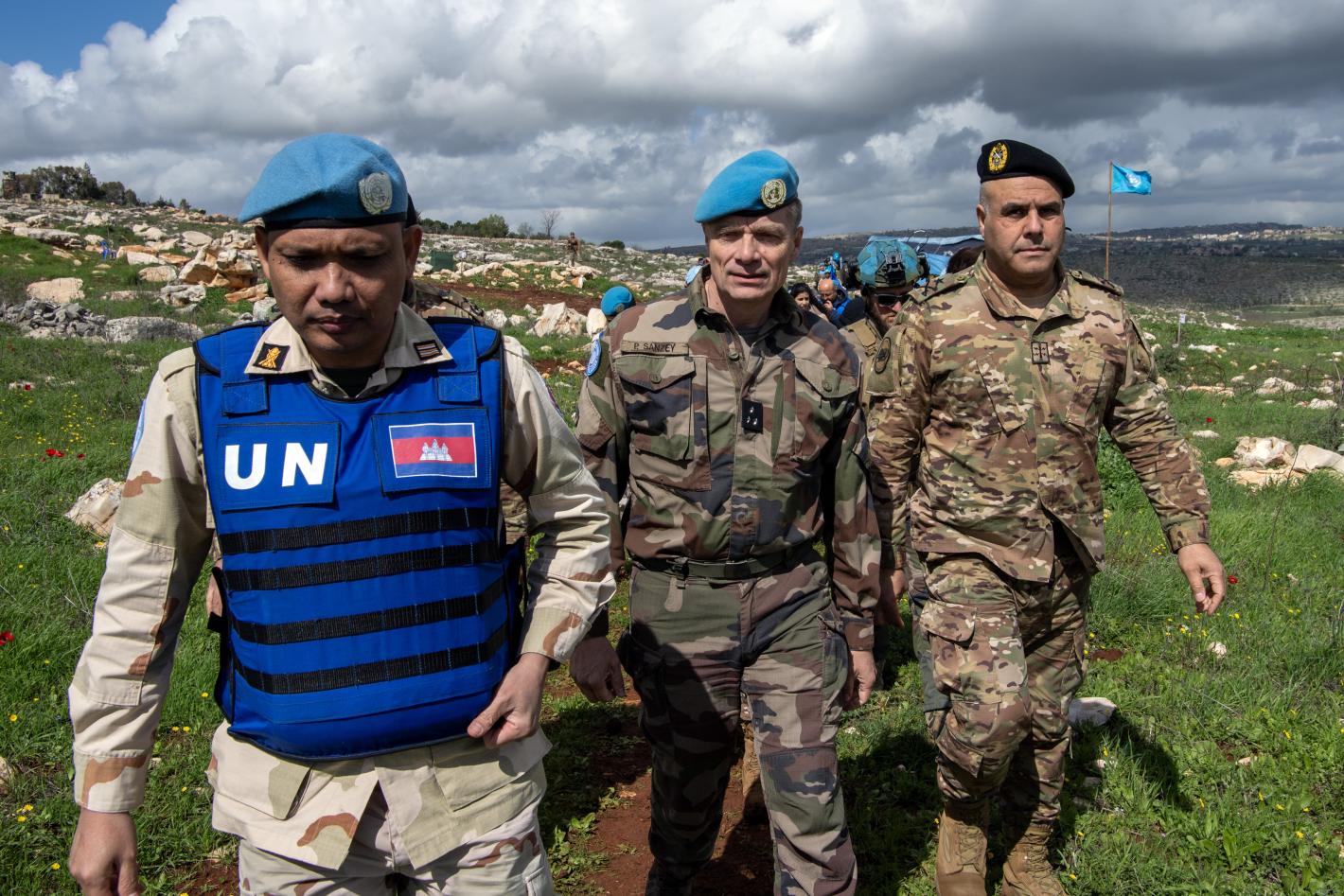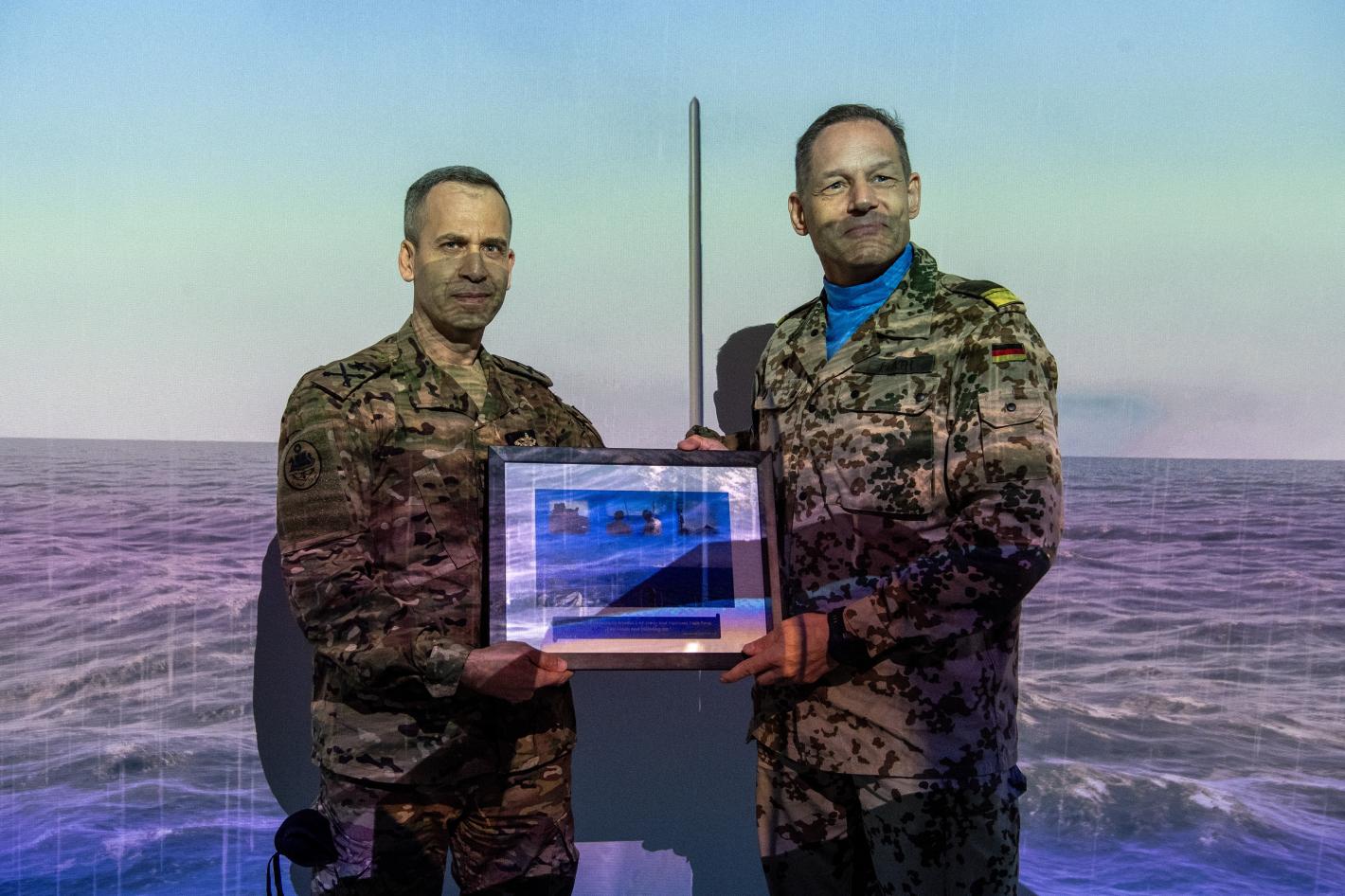The United Nations Interim Force in Lebanon (UNIFIL) and the UN Mine Action Service (UNMAS) jointly marked the International Day for Mine Awareness and Assistance in Mine Action in the UNIFIL Headquarters today, with the Force’s Commander recommitting to eradicate threats posed by landmines in south Lebanon.
“As we commemorate Mine Awareness Day, proud of the achievement realized together, we recommit ourselves to striving for peace and stability in southern Lebanon,” Major General Stefano Del Col told a gathering of UN officials, representatives of the Lebanese Armed Forces (LAF) and fellow peacekeepers.
“Truly protecting your communities equates to ensuring an environment that is free of landmines and explosive remnants of war,” the UNIFIL Head of Mission and Force Commander continued. “Only by working together with Lebanese institutions as well as with the LAF, our strategic partner, can we reach the goal to eradicate those threats from Lebanon.”
Landmines have posed serious threats in south Lebanon. In fact, the first UNIFIL casualty, Master Warrant Officer Karl Oskar Johansson of Sweden, was the victim of a mine accident on 29 March 1978, just days after arriving in south Lebanon to serve with UNIFIL.
Since the end of the 2006 war, UNIFIL deminers partnered with UNMAS and local institutions in humanitarian demining, clearing large swathes of lands contaminated with deadly mines. By 2011, they decontaminated approximately 4.7 million square metres of land. More recently, UNIFIL combat engineers have cleared more than 142,000 square metres of land as part of operational demining in support of the Blue Line marking project near various UN positions. In all, they have destroyed more than 32,600 explosive remnants of war (ERWs) and unexploded ordnances (UXOs), and over 6,600 landmines.
Currently, UNIFIL’s core demining activities are carried out by Cambodian and Chinese peacekeepers, who drew praise from Major General Del Col today for their “hard work and dedication.”
Despite progress, there still exist about 1,000 minefields along the Blue Line, with some of them located in close proximity to residential communities and UN positions in south Lebanon.
Addressing today’s gathering, UNMAS Acting Programme Manager Marc Vaillant said we still have “much work to do, much land to clear.”
“Landmines or cluster munitions are inherently indiscriminate and disproportionate. The people they harm are civilians, children and adults, men and women, aid workers, peacekeepers and deminers,” he said. “All of us today share a commitment to ending these violations and abuses, whether at the international level or inch-by-inch on the ground in the minefields of southern Lebanon.”
Marking the International Mine Action Day, established by the UN General Assembly on 8 December 2005, some young students from three schools in Naqoura, Alma ash-Shaab and Al Duhayra painted mine action murals on the walls of the UNIFIL headquarters.






